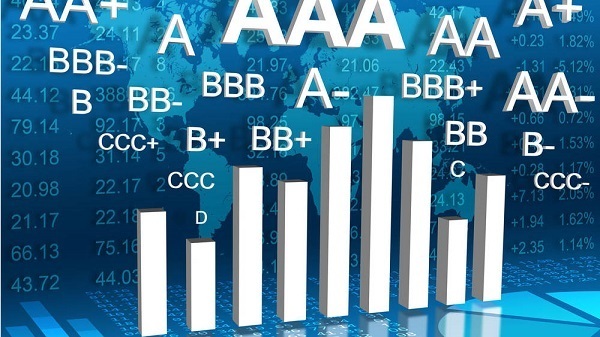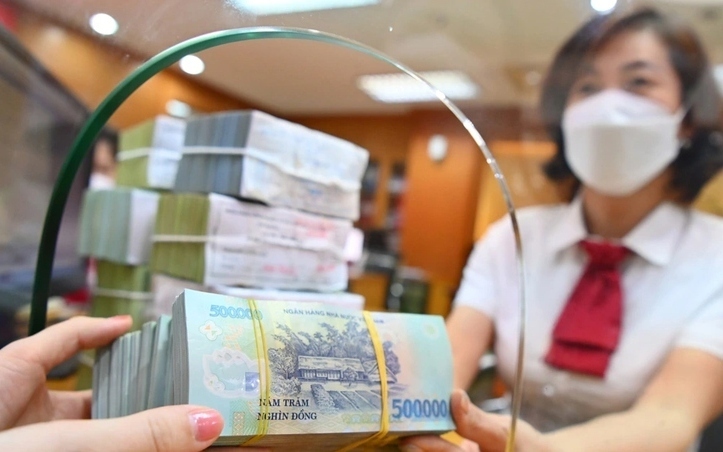The “financial passport” of trust and competence
Not only a measure of financial capacity, risk management and brand reputation, credit rating is considered a “financial passport” that opens the door to integration for Vietnamese banks. In the context of deep globalization, credit rating becomes a “common language” that helps Vietnamese credit institutions affirm their position, increase transparency and access international capital at more reasonable costs.
Dr. Nguyen Quoc Hung - Vice Chairman and General Secretary of the Vietnam Banks Association emphasized that credit rating plays a key role in the implementation of financial obligations not only of countries, but also of each organization and enterprise. In the banking sector, this is an important "financial passport", reflecting the financial capacity, management quality and reliability of credit institutions in the domestic and international markets.
According to Mr. Hung, credit rating is an index to evaluate the ability to borrow and repay debt, showing transparency, and measuring the readiness and integration ability of the national banking system. Through that, banks can self-reflect on their internal capacity, identify risks, and adjust appropriate management strategies.

Vietnam's credit rating is just one notch away from BBB. Illustrative photo.
In recent years, many Vietnamese commercial banks have proactively hired reputable international credit rating organizations to conduct assessments. The results show that the creditworthiness of Vietnamese banks has made significant progress, from asset quality, capital safety to profitability and risk management; demonstrating the process of upgrading internal strength and efforts to make the entire system financially transparent.
“This is an important tool to help investors identify the risk level of the issuer, while also supporting credit institutions to self-assess their financial position, strengthen market confidence and reduce capital mobilization costs,” Dr. Nguyen Quoc Hung emphasized.
Not only does it help banks “measure” their financial health, credit ratings are also a “passport” that helps them access international capital flows, issue bonds abroad, expand strategic cooperation and enhance their reputation with global partners.
Integration from internal strength, upgrading from trust
According to Fitch Ratings, the Vietnamese banking system has tripled in size since 2014, significantly improving its governance capacity and capital adequacy. This growth comes not only from asset size, but also from more transparent, efficient and professional operations.
Mr. Willie Tanoto - Senior Director, Head of Southeast Asia Bank Ratings of Fitch Ratings said that Vietnam is attracting great attention from international organizations thanks to its outstanding economic development, high GDP growth rate and much room for expansion.
“Currently, Vietnam's credit rating is only one level away from BBB, reflecting the increasing confidence of international investors,” said Mr. Tanoto.
According to him, Vietnam's financial environment is becoming increasingly open. A series of policies on bank bond issuance issued in the past decade, along with strong improvements in the legal framework from the Government and the State Bank, have created an important foundation for sustainable development.

Credit rating is considered a “financial passport” that opens the door to integration for Vietnamese banks. Photo: Ngoc Lam.
Fitch Ratings highly appreciates the efforts of Vietnamese banks in enhancing governance, financial transparency and public listing, strengthening market confidence. Over the past 10 years, the banking system has maintained a positive credit growth rate, and asset quality has improved significantly.
According to Fitch's report, although the risk profile of Vietnamese banks is still one level lower than their business profile, the outlook for asset quality has been raised to a positive level, showing that the banking system is getting closer to international standards of safety and operational efficiency.
However, Mr. Willie Tanoto also warned that most banks have recorded high financial leverage and growth rates; risks also increase in parallel with development. We have the right to be optimistic, but we also need to prepare carefully for the challenges that may arise from this growth rate.
Such caution is necessary, especially when Vietnam is still an emerging economy, with a financial structure in the process of completion. Credit ratings are therefore not only a “mirror” but also a “guiding tool” to help banks identify risks, proactively build resilience buffers and strengthen risk control capacity.
Sharing the same view, Mr. Andre Debakhapouve - Director of Risk Management, Vietnam Prosperity Joint Stock Commercial Bank ( VPBank ) said that Vietnam has a high growth rate, accompanied by many opportunities but also many risks that need to be managed.
Banks need to build a risk management culture, ensuring compliance with regulations while remaining flexible and proactive in preventing risks. In particular, it is necessary to promptly identify new risks such as cyber security, artificial intelligence, or non-financial risks to have appropriate response measures.
Appreciating the political stability and clear legal framework, considering them as the foundation for the Vietnamese banking system to operate in a safer environment than many other emerging economies, Mr. Andre Debakhapouve said that Vietnam is on the right track by proactively building a backup buffer and strengthening the capacity of its young, dynamic risk management team.
Looking at the big picture, it can be seen that credit rating is not only a “measure” of financial capacity but also a strategic tool to help Vietnamese banks integrate more deeply into the global market. In an increasingly competitive environment, financial institutions with high credit capacity will have a great advantage in capital mobilization, international cooperation and market confidence.
Each step forward in credit rating is a step forward in terms of management capacity, information transparency and operational standards. It is the result of persistent efforts, from tightening risk management, standardizing credit processes, to improving technology and human resources.
The “financial passport” therefore not only opens the door to integration, but is also a commitment of the Vietnamese banking industry to transparency, discipline and professionalism,… the core values of a modern financial system.
When credit rating is considered a measure of trust, the upgrade journey is also a journey to strengthen the trust of investors, partners and the whole economy. In that journey, each Vietnamese bank is gradually asserting its mettle, confidently carrying its "financial passport" to the open sea, ready to integrate with the world.
Source: https://congthuong.vn/ho-chieu-tin-nhiem-giup-ngan-hang-viet-hoi-nhap-quoc-te-430021.html


![[Photo] Prime Minister Pham Minh Chinh attends a conference to review one year of deploying forces to participate in protecting security and order at the grassroots level.](https://vphoto.vietnam.vn/thumb/1200x675/vietnam/resource/IMAGE/2025/11/12/1762957553775_dsc-2379-jpg.webp)

![[Photo] Highways passing through Dong Nai](https://vphoto.vietnam.vn/thumb/1200x675/vietnam/resource/IMAGE/2025/11/12/1762940149627_ndo_br_1-resize-5756-jpg.webp)


































































































![Dong Nai OCOP transition: [Article 3] Linking tourism with OCOP product consumption](https://vphoto.vietnam.vn/thumb/402x226/vietnam/resource/IMAGE/2025/11/10/1762739199309_1324-2740-7_n-162543_981.jpeg)







Comment (0)